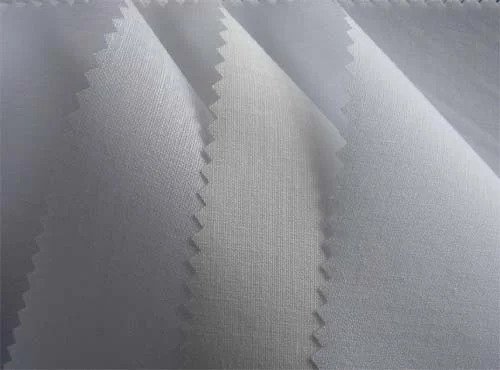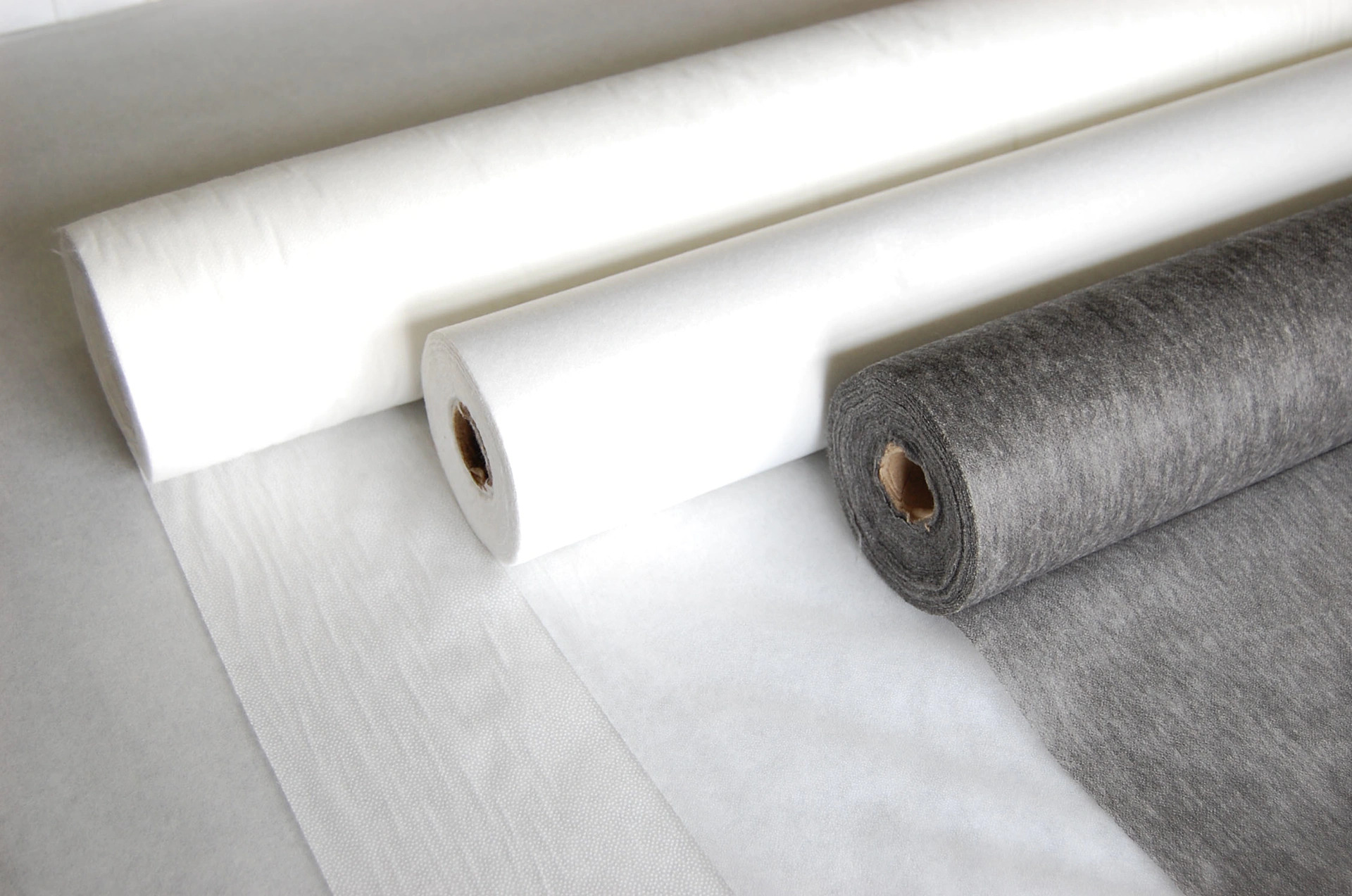Fusible interlining is a critical component in the textile and garment industry, as it provides stability and structure to various fabrics and materials. Whether you are a fashion designer, a clothing manufacturer, or a DIY enthusiast, selecting the right fusible interlining supplier is essential to achieving the desired quality and appearance in your products. This guide will take you through the key factors to consider when choosing the perfect fusible interlining suppliers.
- Understanding Fusible Interlining – Before delving into the selection process, it’s important to have a good grasp of what fusible interlining is and how it works. Fusible interlining is a textile material coated with adhesive on one side, which is applied to the fabric to provide support, structure, and shape. It is commonly used in collars, cuffs, waistbands, and various garment components. Understanding the types and properties of fusible interlining will be beneficial when evaluating potential suppliers.
- Research and Market Analysis – When embarking on the quest for the perfect fusible interlining supplier, thorough research is your best friend. Start by identifying potential suppliers in your region and globally. Consider factors such as their reputation, market presence, and customer reviews. It’s also important to study the trends in the fusible interlining industry, as this can help you find suppliers who offer the latest and most innovative products.
- Quality Assurance – Quality assurance should be at the top of your checklist when selecting a fusible interlining supplier. The quality of the interlining can greatly affect the overall quality and durability of your products. Look for suppliers who have rigorous quality control processes and certifications to ensure that the interlining meets industry standards and your specific requirements.
- Product Range – Different projects may require different types of fusible interlining. Your chosen supplier should have a diverse range of interlining options, including various weights, thicknesses, and adhesive strengths. A wide product range ensures that you can find the perfect match for your specific application.
- Customization Options – The ability to customize fusible interlining is a valuable feature, especially for those in the fashion industry. Seek suppliers who can tailor their products to your specific needs, whether it’s a unique design, color, or adhesive strength. Customization can set your products apart and meet your customers’ demands.
- Price and Cost Efficiency – While quality is crucial, the cost of fusible interlining is also a significant factor. Evaluate suppliers based on their pricing structure and cost efficiency. Compare quotes from different suppliers and consider the overall value they provide. Keep in mind that the cheapest option may sometimes be better in terms of quality and long-term performance.
- Environmental Considerations – In today’s world, environmental responsibility is a growing concern. Look for suppliers who follow eco-friendly practices and offer sustainable, fusible interlining options. Consider certifications and standards related to sustainability, such as Oeko-Tex or GOTS, when making your decision.
- Lead Times and Order Minimums – Consider the lead times for product delivery and any order minimums imposed by the supplier. This is especially important for businesses with tight production schedules or small-scale operations. Ensure that the supplier can meet your production needs in terms of both quantity and timing.
- Technical Support and Expertise – A reliable supplier should offer technical support and expertise to assist you in choosing the right fusible interlining for your projects. Whether you are new to using fusible interlining or a seasoned professional, having access to expert guidance can be invaluable.
- Reliability and Consistency – Consistency is key when it comes to fusible interlining. Your chosen supplier should consistently provide high-quality products without significant variations. Reliability in terms of delivery and product performance is crucial for maintaining the quality and reputation of your brand.
- Supplier Location and Accessibility – Consider the location of the supplier in relation to your business. A local supplier may provide faster delivery and easier communication, while an international supplier might offer cost advantages. Weigh the pros and cons based on your specific needs.
- Testing and Sampling – Before committing to a fusible interlining supplier, request samples for testing and evaluation. Conduct tests to ensure that the interlining meets your requirements in terms of adhesion, durability, and washability. This step can save you from costly mistakes in the long run.
- Payment Terms and Policies – Review the payment terms and policies of potential suppliers. Understand their payment options, credit terms, and return policies in case of product defects or issues. Clear terms and conditions will help avoid disputes in the future.
- Long-Term Partnerships – Building a long-term partnership with your fusible interlining supplier can be highly beneficial. Consider the potential for growth and collaboration with the supplier to meet your evolving needs. Strong relationships can lead to improved pricing and service over time.
- References and Recommendations – Feel free to ask for references or seek recommendations from industry peers and colleagues. Hearing about the experiences of others who have worked with a particular supplier can provide valuable insights and help you make an informed decision.
- Online Presence and Communication – An online presence, including a professional website and active communication channels, can be indicative of a supplier’s commitment to customer service and transparency. Check for a supplier’s accessibility through email, phone, and online chat for any inquiries or concerns.
- Contractual Agreements – Once you’ve narrowed down your options, carefully review the contractual agreements provided by potential suppliers. Ensure that all terms, including pricing, lead times, quality standards, and any customization details, are clearly outlined and agreeable.
- Continuous Evaluation – Selecting the perfect fusible interlining supplier is a process that takes time. It’s an ongoing process that requires continuous evaluation. Regularly assess the supplier’s performance, quality, and responsiveness to ensure they meet your expectations consistently.
- Backup Suppliers – In the volatile world of business, having backup suppliers can be a strategic move. Identify and develop relationships with alternative fusible interlining suppliers to mitigate any unforeseen disruptions in your supply chain.
- Future Expansion – Consider your plans for future expansion when selecting a supplier. Ensure that your chosen supplier can accommodate increased demand, both in terms of production capacity and product range.
Choosing the perfect fusible interlining supplier is a critical step in the success of your textile or garment-related venture. By considering factors such as quality, product range, cost efficiency, environmental responsibility, and long-term partnership potential, you can make an informed decision that ensures your products meet the highest standards. Remember that the right supplier is a key collaborator in helping you achieve your goals and create high-quality, durable, and stylish garments.
How to Choose the Perfect Fusible Interlining Suppliers

Fusible Interlining Supplier
In the realm of textile manufacturing, the selection of a reliable fusible interlining supplier is crucial for ensuring the quality and performance of your end products. Whether you’re a seasoned garment manufacturer or a budding fashion entrepreneur, partnering with the right supplier can make all the difference. In this guide, we’ll explore the essential factors to consider when seeking out the perfect fusible interlining supplier for your business needs.
Understanding Fusible Interlining
Before delving into the supplier selection process, let’s briefly recap what fusible interlining is. Fusible interlining is a type of fabric that is coated with a thermoplastic adhesive on one side. When subjected to heat and pressure, this adhesive melts and bonds the interlining to the garment fabric, providing structure, stability, and shape retention.
Quality Assurance
When searching for a fusible interlining supplier, prioritizing quality assurance is paramount. Opt for suppliers who adhere to stringent quality control measures throughout the manufacturing process. Look for certifications such as ISO standards or OEKO-TEX certification, which ensure that the interlining meets industry standards for safety and performance.
Product Range and Variety
A diverse product range is another key consideration when selecting a fusible interlining supplier. Choose a supplier who offers a wide variety of interlining weights, compositions, and adhesive types to cater to your specific application requirements. Whether you need lightweight interlining for delicate fabrics or heavyweight interlining for structured garments, a supplier with a comprehensive product range ensures that you have access to the right materials for your projects.
Customization Options
In the fast-paced world of fashion and garment manufacturing, customization is often the key to staying ahead of the competition. Seek out fusible interlining suppliers who offer customization options such as color matching, width adjustments, or adhesive formulations tailored to your unique specifications. A supplier who is willing to collaborate with you to create bespoke interlining solutions can add significant value to your business.
Reliability and Consistency
Reliability and consistency are non-negotiable qualities when it comes to selecting a fusible interlining supplier. Look for suppliers who have a track record of on-time delivery, consistent product quality, and excellent customer service. A reliable supplier ensures that you have a steady supply of high-quality interlining materials, allowing you to meet production deadlines and maintain customer satisfaction.
Technical Support and Expertise
In the complex world of textile manufacturing, technical support and expertise are invaluable assets. Choose a fusible interlining supplier who offers comprehensive technical support, including assistance with product selection, application techniques, and troubleshooting. A supplier with a team of experienced textile engineers and customer support representatives can help you navigate any challenges that arise, ensuring smooth integration of interlining into your manufacturing process.
Cost-Effectiveness
While quality should always be the primary consideration, cost-effectiveness is also a crucial factor to weigh when selecting a fusible interlining supplier. Compare prices from multiple suppliers, taking into account factors such as product quality, customization options, and shipping costs. Remember that investing in high-quality interlining materials upfront can lead to long-term savings by reducing production defects and ensuring the longevity of your garments.


Leave a Reply